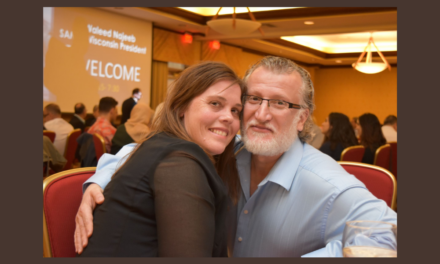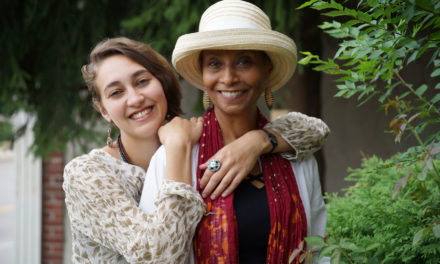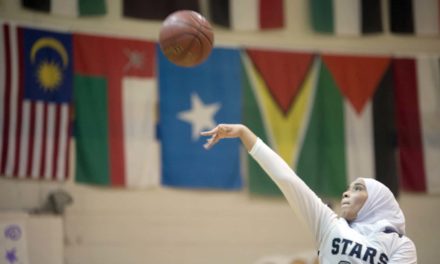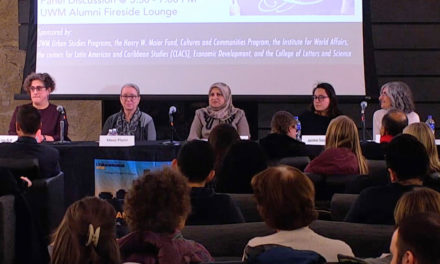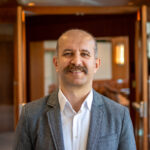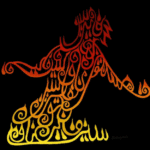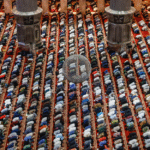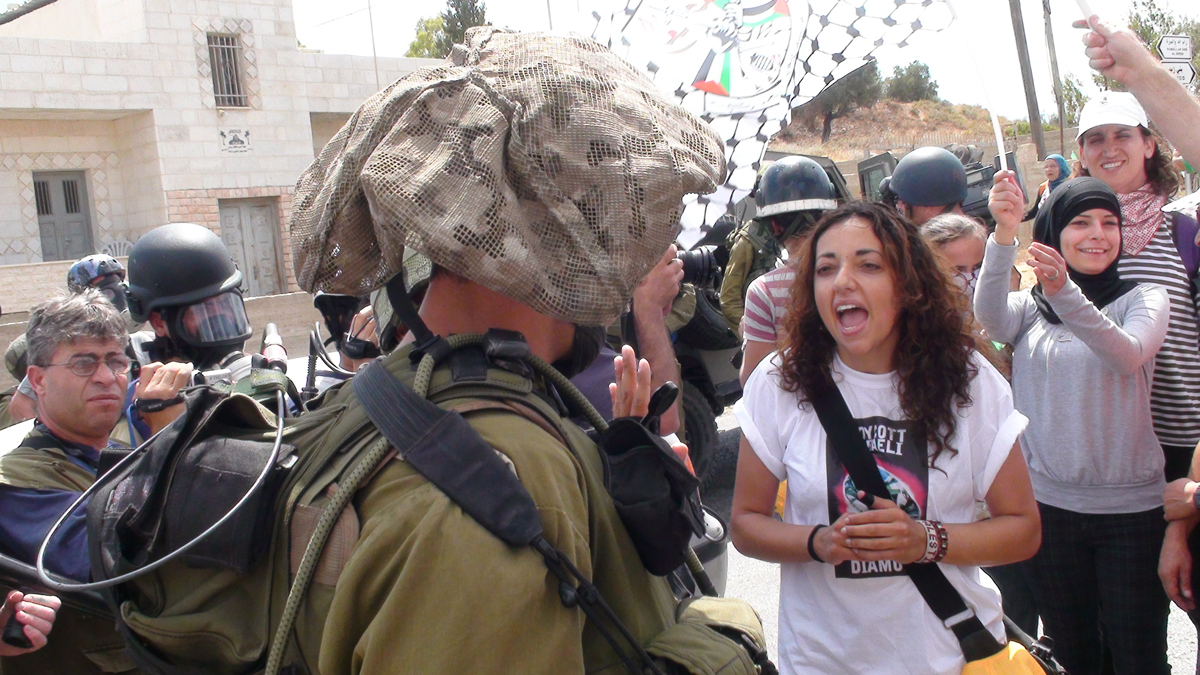
U.S. activist and human rights lawyer Huwaida Arraf confronts an Israeli soldier in the West Bank town of Ni’ilin in 2008 during a nonviolent protest against an Israeli-constructed separation wall that would take about 1/3 of Ni’ilin’s land.
Early Monday morning, the Israeli military stopped well-known Swedish climate and pro-Palestinian activist Greta Thurnberg and 11 others on board the Madleen from delivering humanitarian aid to Gaza by sea.
The civilian ship, operating under the auspices of the Freedom Flotilla Coalition, “seems to be surrounded by Israeli naval commandos,” Huwaida Arraf, Freedom Flotilla organizer, International Solidarity Movement co-founder and U.S. human rights lawyer, told CNN in real time.
(At the time of writing (Monday), the Israeli Foreign Ministry said Israeli commandos seized the vessel in international waters and have taken those on board to Israel. Al Jazeera reported they are each being held in solitary confinement.)
For over two decades, Arraf has led legal and grassroots initiatives advocating for Palestinian rights. In 2001, the Palestinian American co-founded the International Solidarity Movement, a Palestinian-led nonviolent resistance movement, which has been twice nominated for the Nobel Peace Prize.
The Detroit native chaired the Free Gaza Movement, which in 2008 and 2010 organized ships to try to evade the Israeli naval blockade to deliver food, medicine and other aid to the besieged Gaza Strip. Arraf was on board the Turkish ship Mavi Marmara in 2010 when Israeli forces attacked. Nine activists were killed and another died later of wounds inflicted.
The Wisconsin Institute for Peace and Conflict Studies invited Arraf to speak in April at the opening session of the WIPCS 40th annual conference, held at the Central United Methodist Church in Milwaukee. She spoke from an international law lens about what is happening in Gaza and her experience as a champion of Palestinian human rights.
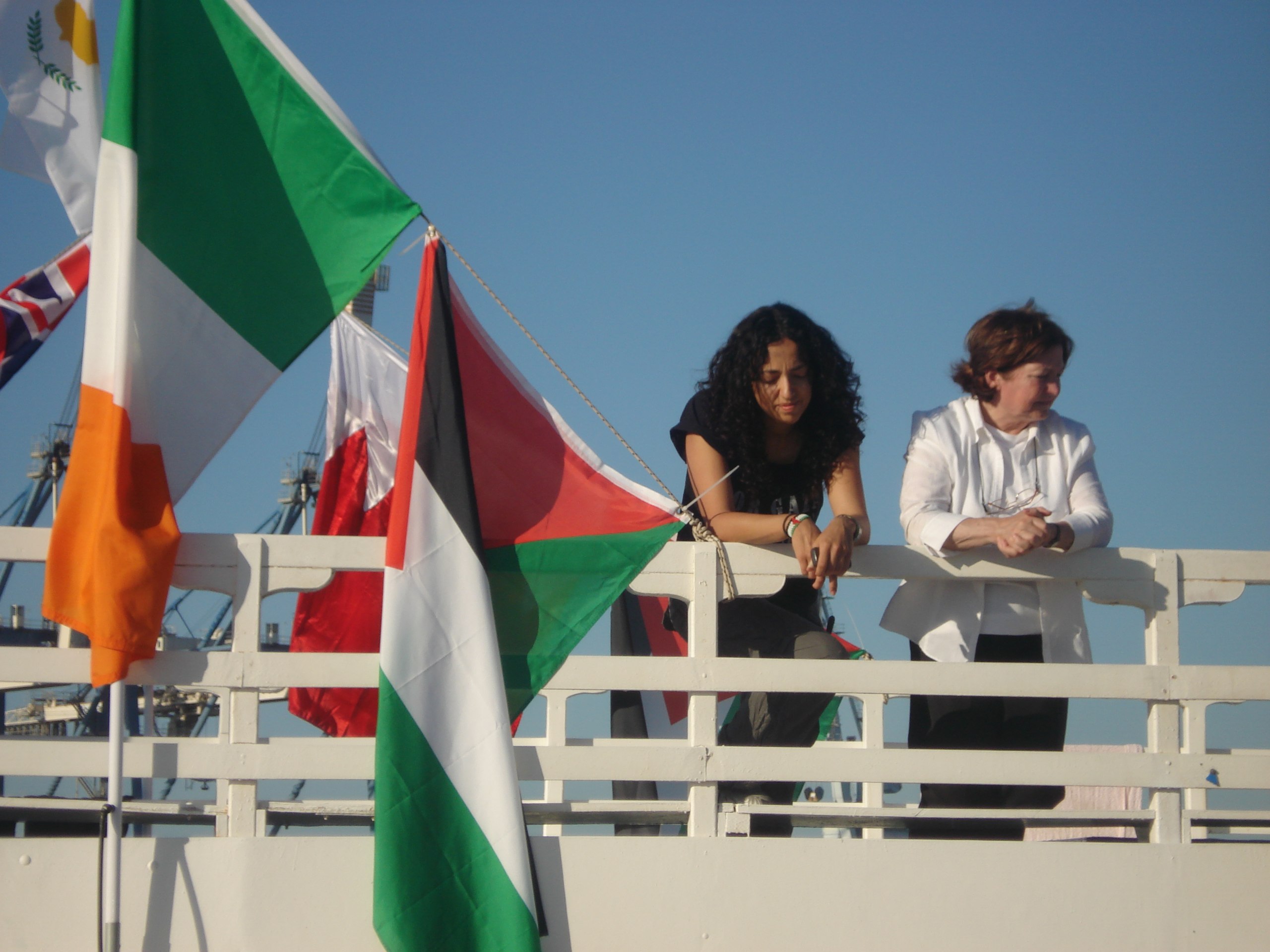
Huwaida Arraf (left) stands with Nobel Peace Laureate Mairead McGuire aboard the “Spirit of Humanity” before it set sail in 2009 to try to break the siege of Gaza. It was intercepted by the Israeli Navy about 20 nautical miles from the Gaza coast.
Excerpted comments from Arraf’s WIPCS conference address follow.
“We are witnessing a genocide”
“What we are witnessing now in Gaza is a genocide. It is a livestream genocide so the world sees it,” Arraf told an audience of about 40 conference participants. “Millions around the world have been rising up and yet we have been unable to stop it. Israel doesn’t care because it has experienced decades of impunity. It knows the United States government is firmly behind it and continues to provide Israel with total impunity.
“This implicates not just Palestine but really the whole international legal order. It’s not just about Palestine; it’s about what kind of world we will accept and if international legal order is going to survive.
“When I talk about decades of impunity …, the fact is that Israel is occupying, and not just occupying but colonizing, our land for almost eight decades.
“When Israel imposed this hermetic seal on Gaza in 2007, that was just an amplification of the closure they already had on Gaza. Even before that, Palestinians always had to get Israeli permission to leave. But since 2007, the extent of the closure on Gaza was so illegal, commissions and human rights organizations were writing reports, calling it illegal. This was collective punishment and the world was doing nothing about it.”
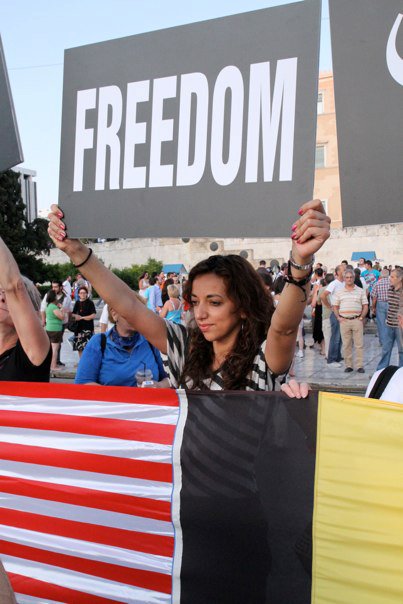
Huwaida Arraf protests in Athens in 2008 for the Greek government to allow the Freedom Flotilla to set sail for Gaza.
From conflict resolution to resistance
“I was in Palestine in 2001 to work in a conflict resolution program with Palestinian and Israeli youth. The level of violence I was seeing against the Palestinians, with no accountability, was horrible. To make it worse, the Western media made it sound like it was always the Palestinians’ fault. We were dehumanized and portrayed as violent when Palestinians were attacked for non-violent resistance.
“I ended up leaving the conflict resolution world, not because I don’t think dialogue with the other side is important. What I realized is that the problem is not that Palestinians hate Jews or Israelis and vice versa. They don’t hate each other. The kids I worked with learned to become best friends.
“A lot of these programs seem like they will lead us towards peace but the work that needs to be done to dismantle the structures of colonialism, the structures that tear people apart, was not happening. And if we were not working together to dismantle the structures of racism, then we were contributing to their normalization.
“These well-funded programs, touted as wonderful peace programs, are actually harmful to our liberation struggle, and we can’t have that. So, I ended up starting the International Solidarity Movement.”
Solidarity with Palestine
“I thought maybe the world just didn’t know what was happening. If they knew, they would not accept this. I believed the United States, which defended freedom and human rights around the world, wouldn’t tolerate what is happening in Palestine.
“The International Solidarity Movement called on people from around the world to come to Palestine. I thought if internationals joined, they could deter violence and amplify Palestinian voices. They could go back to their own countries and say what they had seen.
“The ISM has been working for over two decades and is still working in occupied Palestine. We have been arrested and vilified and some of our members killed with no accountability.
“In 2003, one of our colleagues, Rachel Corrie, a 23-year-old American college student, was crushed to death by an Israeli bulldozer. And what was she doing? She was trying to prevent the demolition of the home of the family she was staying with.
“ISM volunteers were trying to protect Palestinian municipal workers who were repairing wells Israel had deliberately damaged or destroyed. They would also be attacked.
“A few weeks after Israel killed Rachel Corrie, another international volunteer, Tom Hurndall, a student from the U.K., was shot in the back of the head when he was moving Palestinian children out of the line of Israeli fire. He lay in a coma for nine months and then died. There has been no accountability.
“We thought internationals could help protect the Palestinians because internationals have countries that would stand up for them, unlike the Palestinians who don’t have anyone to defend them.
“When Israel faced no accountability for even killing internationals, it emboldened them even more.”

Freedom flotillas launch
“When Israel’s siege on Gaza began in 2007, we decided the world shouldn’t accept it. We started the Free Gaza Movement to set sail from international waters right into Gaza’s territorial waters. If the Israeli military was going to stop us, they would have to confront us in the middle of the sea and do whatever they were going to do. We were not going to turn back.
“In the summer of 2008, the Israelis backed down and we became the first two small fishing boats to actually get to Gaza in over 40 years without getting permission from Israel. We sailed in and out without confrontation. We were able to do that a few times.
“Then, at the end of 2008, Israel launched ‘Operation Cast Lead,’ what Amnesty International called, “22 days of death and destruction.” They killed 1,400 people, 300 of them children and destroyed homes, schools, mosques, churches and businesses with no accountability. They prevented rebuilding anything by not allowing anything in.
“In 2010, we organized a huge flotilla of seven ships. We were carrying 10,000 tons of aid. We had 700 people from 35 countries. We sailed towards Gaza. Israel, knowing this was a civilian international aid ship, launched a military assault that killed 10 of our volunteers and injured 50 others. They arrested everybody. Still, they faced no accountability.
“We tried to sue in the United States because the ship I was on was a U.S. flagship. Israel hit a U.S. flagship and tortured us on board in international waters. We lost the lawsuit because they said Israel has ‘foreign sovereign immunity.’
“We could talk about all the different lawsuits we have pursued … but Israel, and we might as well say the United States, can support and commit genocide anywhere in the world and we are not going to be held accountable.
“We always hear Israel has the right to defend itself. Under international law, what Israel is doing is not self-defense because Israel was not attacked by a foreign sovereign state.
“Israel actually has an obligation for the safety and wellbeing of the people that they occupy. But Israel never acknowledged that it’s occupying Palestine, even though the rest of the world did.
“It is the Palestinians who have a right to defend themselves. International law recognizes the right of an occupied people to use all means, including armed resistance, in order to rid themselves of foreign domination and occupation. That does not mean they can attack civilians. Under international law, you can never target civilians.”
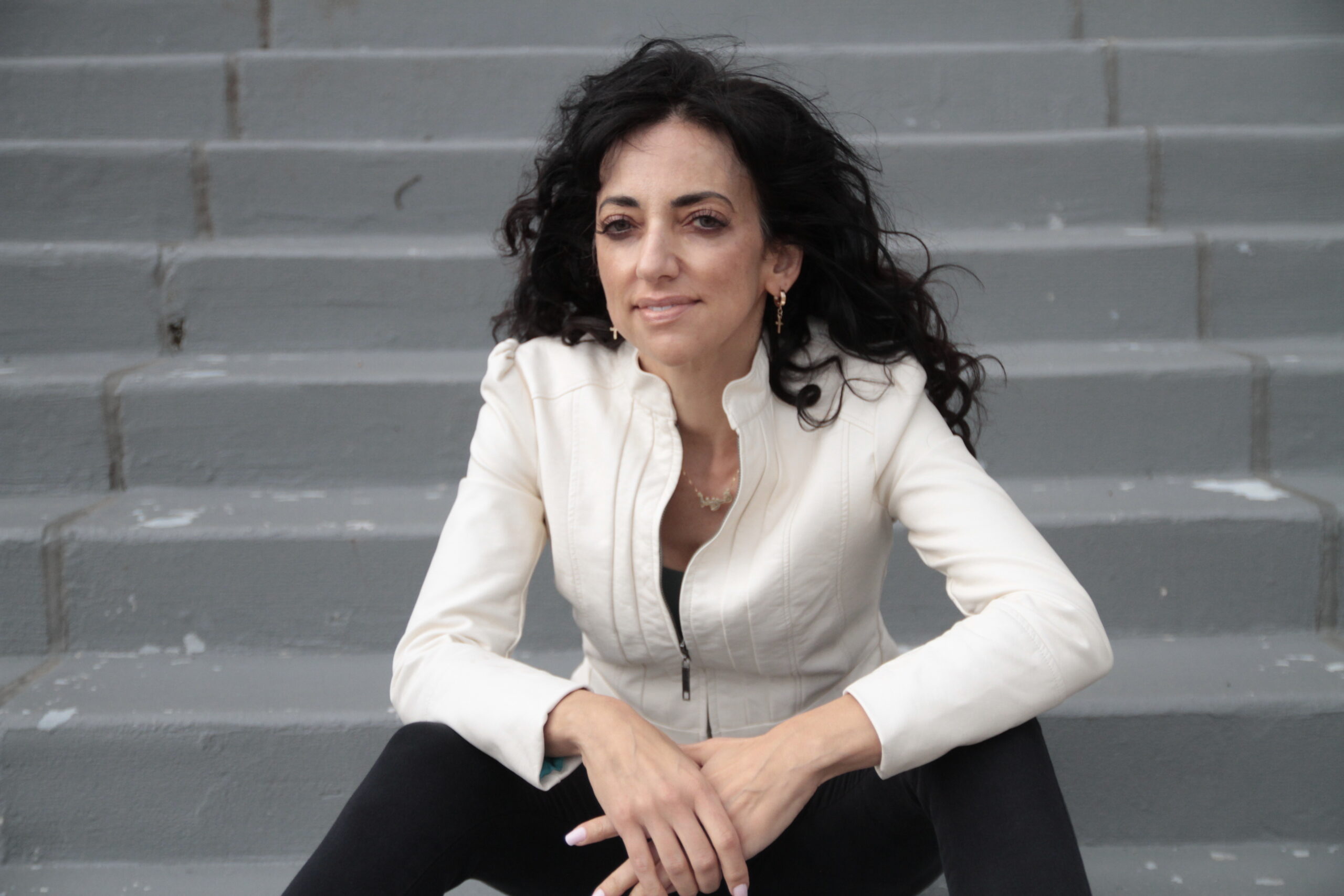
Huwaida Arraf ran for a seat in Michigan’s House of Representatives in 2022. She was defeated in the Democratic primary.
What can we do?
After the conference, Wisconsin Muslim Journal requested an interview with Arraf to get her thoughts on what individuals can do to make a difference in Gaza and “to make this world one we want to live in,” as she put it. She made time for the interview, despite dealing with the fallout of a drone strike in May on the Conscience, a Freedom Flotilla aid ship that was preparing to respond to Israel’s complete blockade of food and medicine to Gaza since March. She also faced a deadline to submit a legal complaint to the Inter-American Commission on Human Rights, calling on the U.S. to follow its obligations to prevent a genocide under the American Declaration on the Rights and Duties of Man. Arraf is lead attorney on the case.
Here are the highlights of our interview with Arraf.
What can we do to make this world one we want to live in?
“That’s a big question. Let me start with this story. A couple of years ago, my son wore a sticker that said ‘Black Lives Matter’ on his baseball cap. He didn’t wear it in class but put it on at recess. He was told he couldn’t wear it because it was too political. My son, who was only nine or 10 at the time, ended up telling his teacher everything in life is political.
“What is political? It’s deciding the policies that affect our daily lives. We have to participate in it. The question is how?
“We should do it in ways we feel comfortable. For some people, that is expressing through art. Others like to get involved in legislative bodies or political campaigns.
“About Palestine specifically, if someone says, ‘Don’t say that; that’s too political?’ that is intended to silence us, which only preserves the status quo and the status quo is deadly. We absolutely can’t accept it.”
What can we do to bring about a change in policy towards Gaza?
“First of all, we raise awareness. Then action is taken based on that awareness to pressure those making decisions to make better decisions.
“Unfortunately, there’s a little caveat. We have a political system here that’s not very democratic, except when it comes to the day of the vote. But every other day, our representatives don’t listen to us. They listen to those with big money. Big money in politics is very corruptive.
“While we work on changing that policy, we also have to work on forming a counterweight to all the influence of money in politics. Talk to your neighbors and co-workers. The people power of having the conversations and educating people, making sure people understand the detrimental effects of certain policies, who stands to gain and who stands to lose.
“Then form that pressure on our elected representatives, making sure they hear from us every day. It’s all about raising your voice. If they still don’t listen, vote them out of office. We have to form that political force.
“There is also a legal route, working on lawsuits that are also in service of this issue.
“I encourage people to consider running for office. I think people are starting to realize the best people for office are those who really represent our values.
“(On the Freedom Flotilla Coalition’s ships) Here are people saying we’re going to risk our lives to get on a boat to confront this unlawful, deadly policy.
“Get involved; that’s what we need to do.
“There is a caveat. We’re obviously under attack here in the United States in terms of the deliberate, concerted effort to dismantle the pro-Palestinian rights movement. We see people with visas and green cards being threatened. We see people being doxed and losing their jobs. We have to recognize there are real threats to speaking up. It is a decision everyone has to make.”
What is at stake?
“You have powerful nations pushing one vision of a world where international law is trampled on and might is right. And then you have international civil society on the other side, fighting for a world where human rights are respected and power is held to account in order to safeguard the rights of all people, irrespective of what country you come from, your religion or ethnicity or anything else.
“Our vision of the world is the one we want to live in. We have to win. Otherwise, it’s a very bleak and dangerous future for all of us.”
